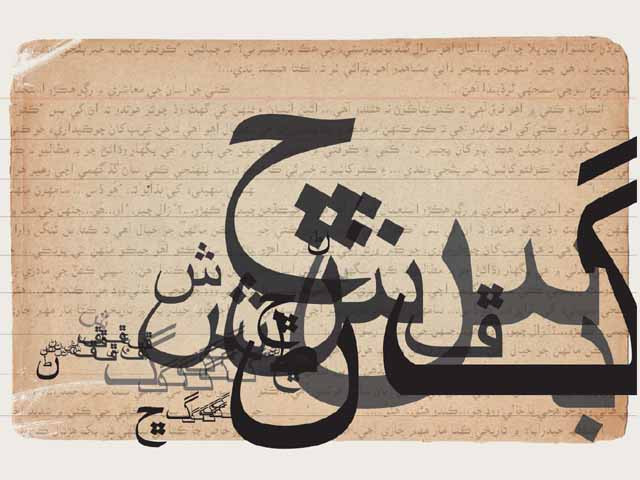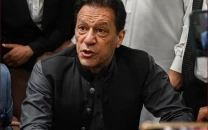Laws for language: If the British used Sindhi, why shouldn’t we, experts urge minister
Sindhi writers and scholars met with the federal law minister to ask him to support the cause.

Laws for language: If the British used Sindhi, why shouldn’t we, experts urge minister
The representatives of the Sindhi Adabi Sangat (SAS), Sindhi Language Authority, Sindh Democratic Forum, author Muhammad Ibrahim Joyo and others met with the federal law and parliamentary affairs minister, Maula Bux Chandio, on Wednesday. They asked the minister to fight for national status for Sindhi in the National Assembly.
Dr Fehmida Hussain, the chairperson of the Sindhi Language Authority, asked the minister to form a language commission comprising officials, writers and scholars for the languages. However, Chandio, despite being receptive to their demands, expressed a lack of optimism about the passage of the bill in the near future.
“The federation is rife with misgivings,” he told the delegation. “First it will correct the structure before such a bill can sail through.”
The SAS launched a three-week long campaign from February 1 for the implementation of a bill passed unanimously by the Sindh Assembly in 1972. The organisations’ leaders, Mehrunissa Larik, Amin Lakho and Zaib Nizamani, want the enforcement of a 1972 bill. It called for using Sindhi for official correspondence and asked the National Assembly to grant it the status of a national language. “All the major languages of the provinces should be given national status,” said Larik. “Even the Britishers used Sindhi as an official language,” she claimed. The SAS will organise an event on February 21, which is International Mother Language Day, to press for their demands.
The National Assembly’s standing committee rejected a similar bill in May 2011, introduced by former MNA Marvi Memon. The names of Pakistan Peoples Party MNA Saeed Ahmed Zafar and the Muttahida Qaumi Movement MNA Iqbal Qadri have surfaced with objections to the bill.
But Chandio said that the bill lay with the constitutional committee. The standing committee on law and justice had scrutinised the bill. “It will get through,” he said, but did not say when. Some members in the Standing Committee opposed the bill, he added, but did not name them.
20th Amendment
Chandio criticised political parties, including the Pakistan Muslim League-Nawaz (PML-N), which supported the bill, for calling parliament a powerless institution. “The same parties, who would say that parliament is ineffective, voted for the 20th amendment.”
He called the bill a historic achievement for all political forces. “It will pave the way for free, fair and transparent elections,” he said.
Chandio said that the bill also placated the concerns of Sindhi nationalists. He did not, however, say anything about his party’s position if the MQM introduced the 21st constitutional amendment bill for the creation of new provinces without the approval of provincial assemblies. “I don’t believe in ifs and buts,” was his reply. “We will reveal our stance only when such a development takes place.”
Published in The Express Tribune, February 16th, 2012.



















COMMENTS
Comments are moderated and generally will be posted if they are on-topic and not abusive.
For more information, please see our Comments FAQ